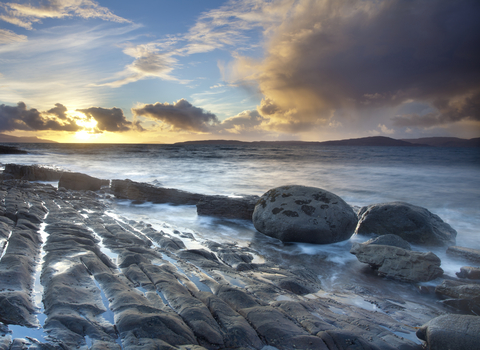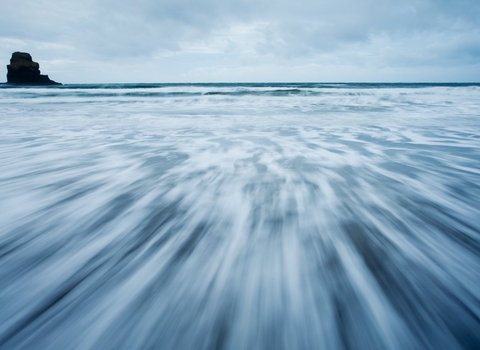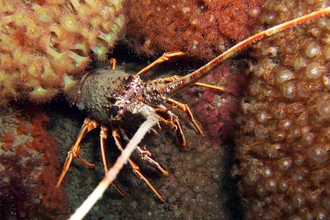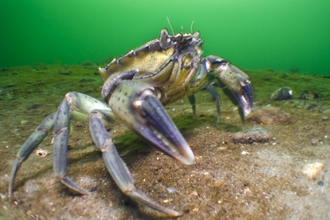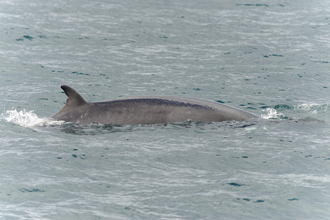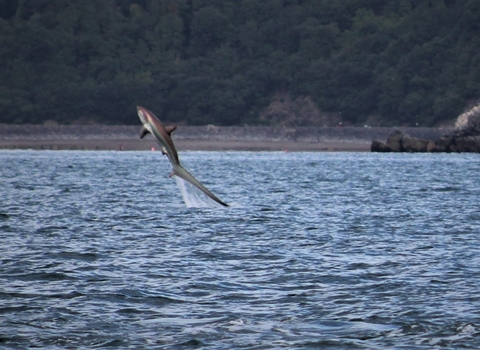
Thresher shark ©Rob Hughes, Devon Sea Safari
Thresher shark
The thresher shark is a migratory species and passes through UK waters in the summer months. If you’re lucky, you might see this magnificent shark jump high out of the water in to the air.
Scientific name
Alopias vulpinusWhen to see
Present in the summer monthsSpecies information
Statistics
Length: Up to 6mWeight: Up to 340 kg
Lifespan: They live for up to 50 years.
Conservation status
The thresher shark is listed as Vulnerable by the IUCN Red List.

